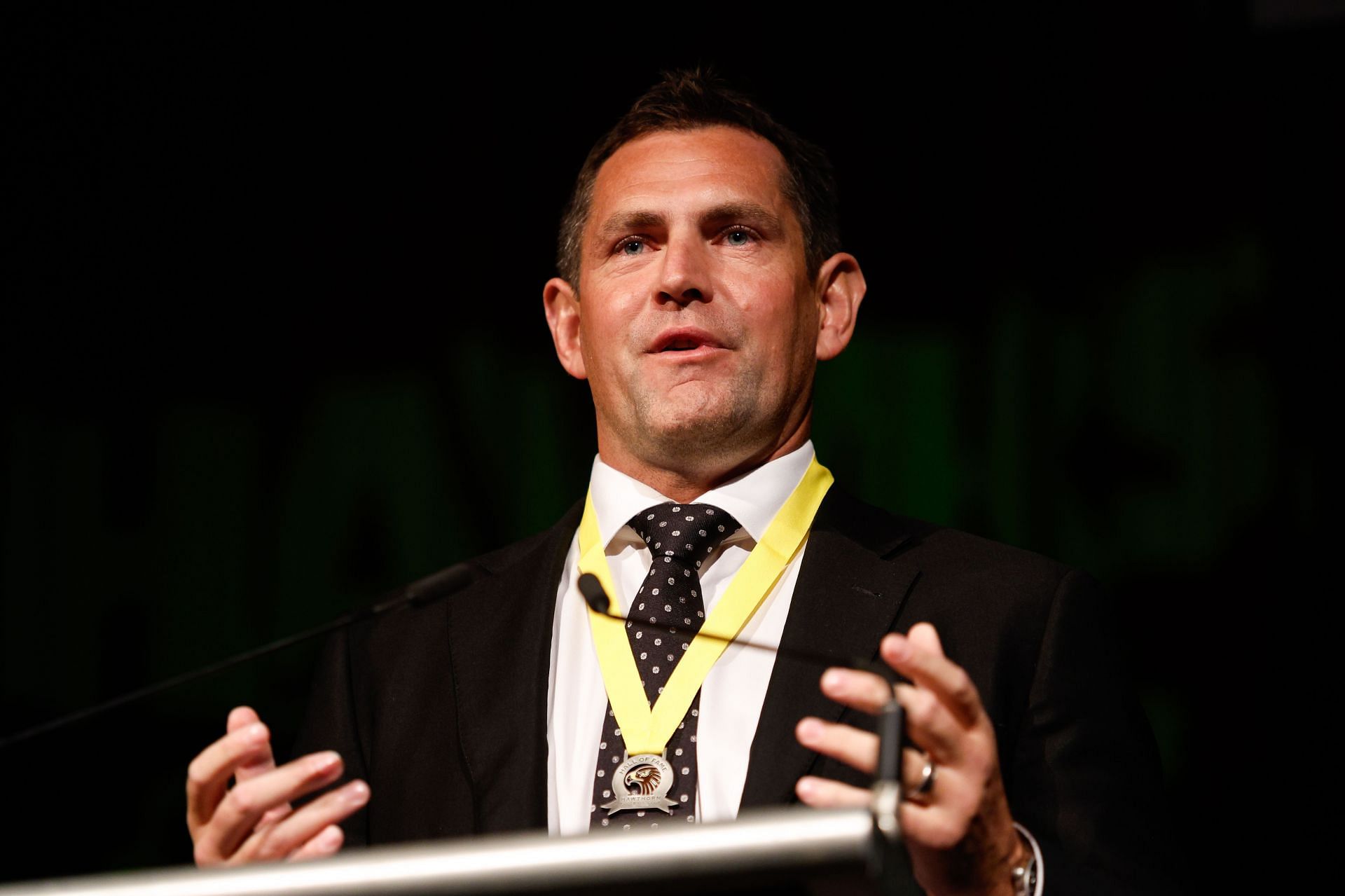
5 best retirement comebacks in AFL history
There are many valid reasons for AFL athletes to walk away from the game: age, recurring injuries, new interests and others. Some find that they love the thrill and return, though.
On that note, let's take a deep dive into some of the greats who came back from retirement and what made them special enough to consider a comeback.
Best retirement comebacks in AFL history
#5 Chris Mew
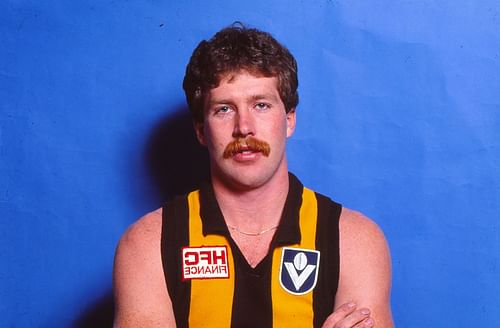
Mew was a part of the dominant Hawthorn side that reigned in the 80s and 90s. He won the premiership in 1983, 1986, 1988, 1989 and 1991.
He was a centre half back who was reportedly always the first name on the weekly team sheet. He retired in 1989, but constant visits by his coach Allan James brought him back to the team. He was phenomenal in the 1991 season as he won his fifth flag with the hawks.
Mew retired finally in 1993 after an Achilles injury. He's named on the Hawthorn’s official website ‘Team of the century’.
#4 Peter Hudson
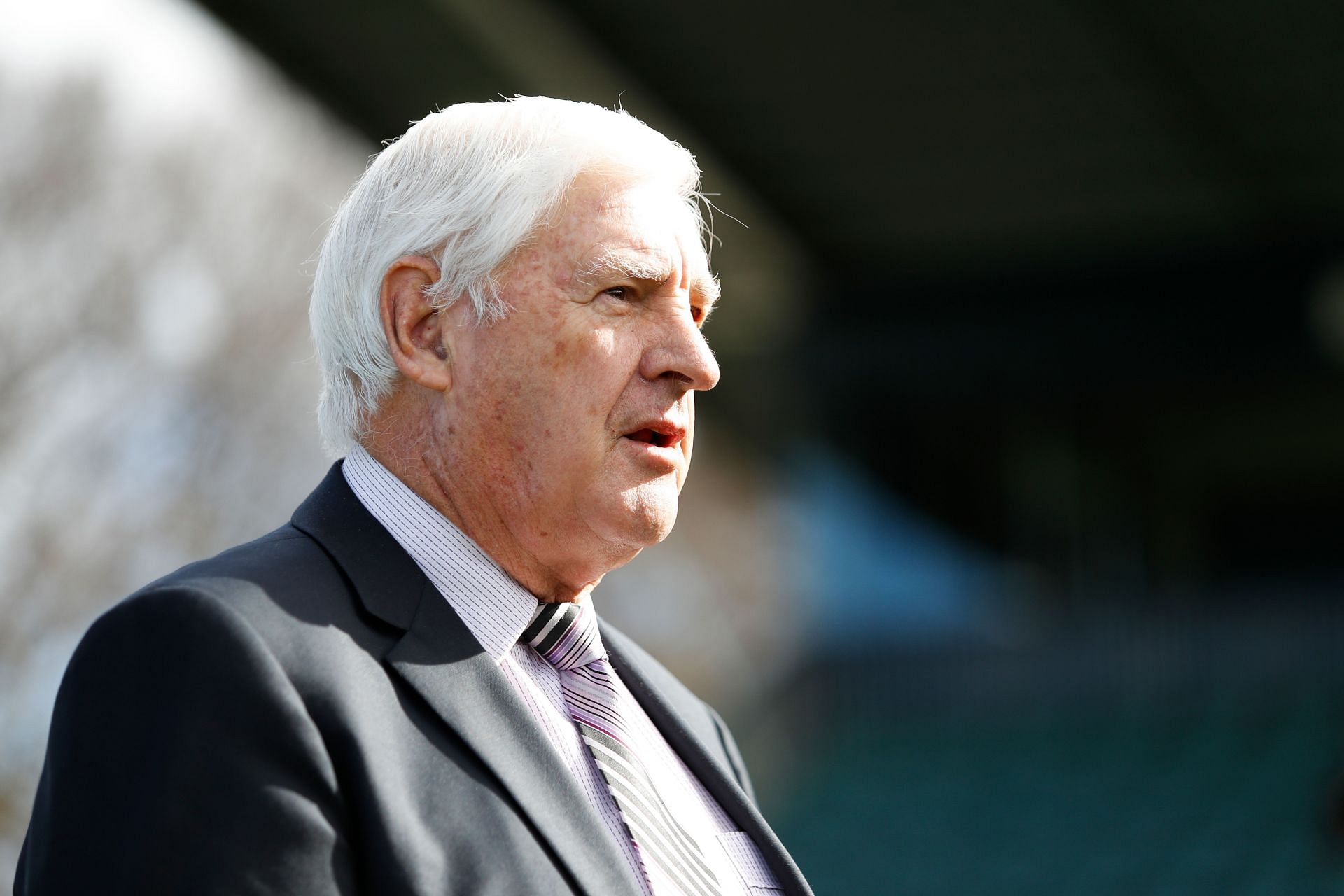
Hudson is considered one of the greatest full forwards in the game's history. He has the highest career goal-per-game average (5.64) in VFL/AFL history. He's one of two player to average more than five goals per game in VFL/AFL history and was the first VFL/AFL player to kick at least 100 goals in a season five times.
In 1971, he equalled Bob Pratt's record of 150 goals in a season after kicking three goals for Hawthorn to win the Grand Final side. In 1974, after hurting his knee playing netball, he decided to have knee surgery in the summer and didn't return to the AFL.
In 1977, he was lured back to play for Hawthorn and scored 110 goals that season.
#3 Tim Watson
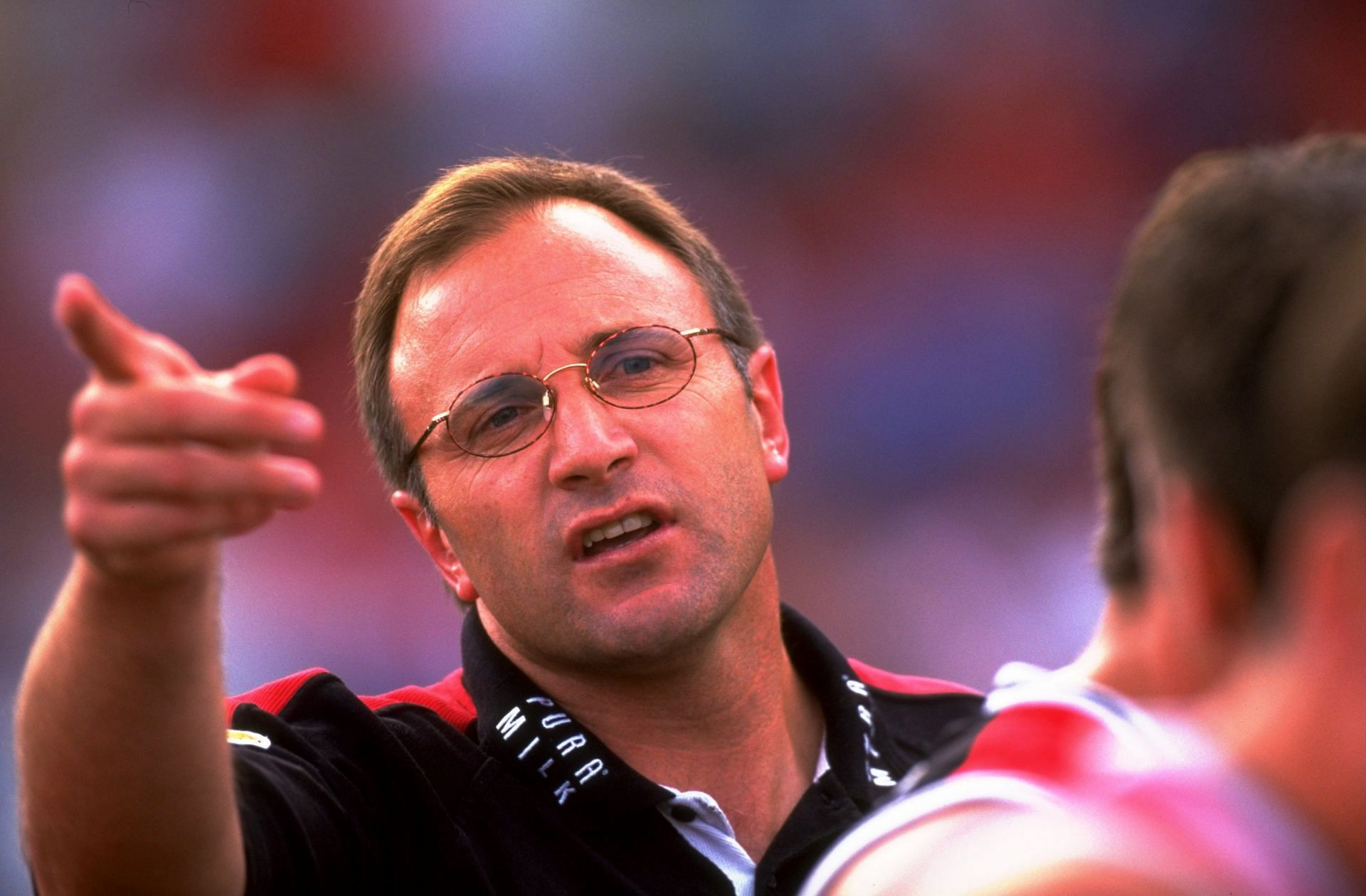
Watson made his debut for Essendon in 1977 at the age of 15 years, 305 days making him the fourth youngest player in league history.
He played the ruck-rover in Essendon's 1984 and 1985 premiership wins. He was the captain between 1989-1991. In the 1992 preseason draft, he was recruited by the West Coast Eagles even though he expressed his desire to retire. He didn't play a game for the Eagles but took up a commentary role with the Seven Network.
In 1993, Essendon's coach Kevin Sheedy convinced him to come out of retirement. He was not able to return to the fitness level that saw him play ruck in his younger years, so he was moved to the forward line.
Watson's experience helped a young team not to lose their head and was very instrumental in their premiership win that year. He retired finally in 1994 after 307 games, kicking 335 goals for Essendon.
#2 Stuart Dew
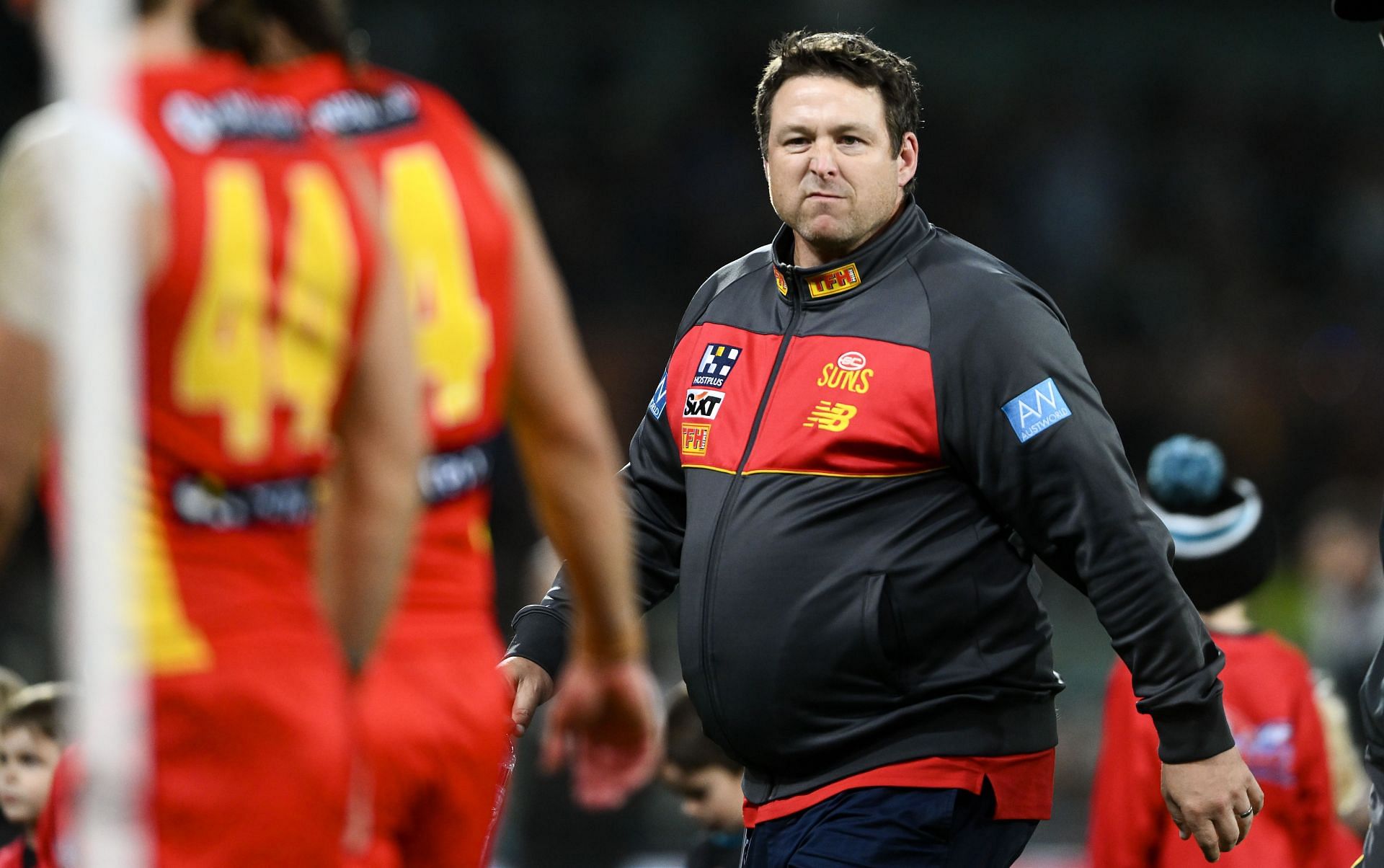
In 1997, Dew made his debut with Port Adelaide in their inaugural year in the AFL and became a regular in the 1998 season. He was key for the Power in 2004, kicking 31 goals on their way to their first premiership win. He first retired in 2006 after 180 games and 245 goals for the Power.
Dew announced his intentions to return to come out of retirement to play a final season for the Central Districts in 2007. Alastair Clarkson, who was assistant coach when Dew was at Port Adelaide and was now senior coach at Hawthorn, convinced him to enter the national draft, and Dew was selected in Hawthorn’s third selection.
He played the first game of the season but suffered an injury in the second game against Fremantle and missed some games. He was back in time for the finals, where he scored two goals and set up two others for Hawthorn to lift the 2008 premiership trophy before finally retiring in 2009.
#1 Gary Ablett Snr
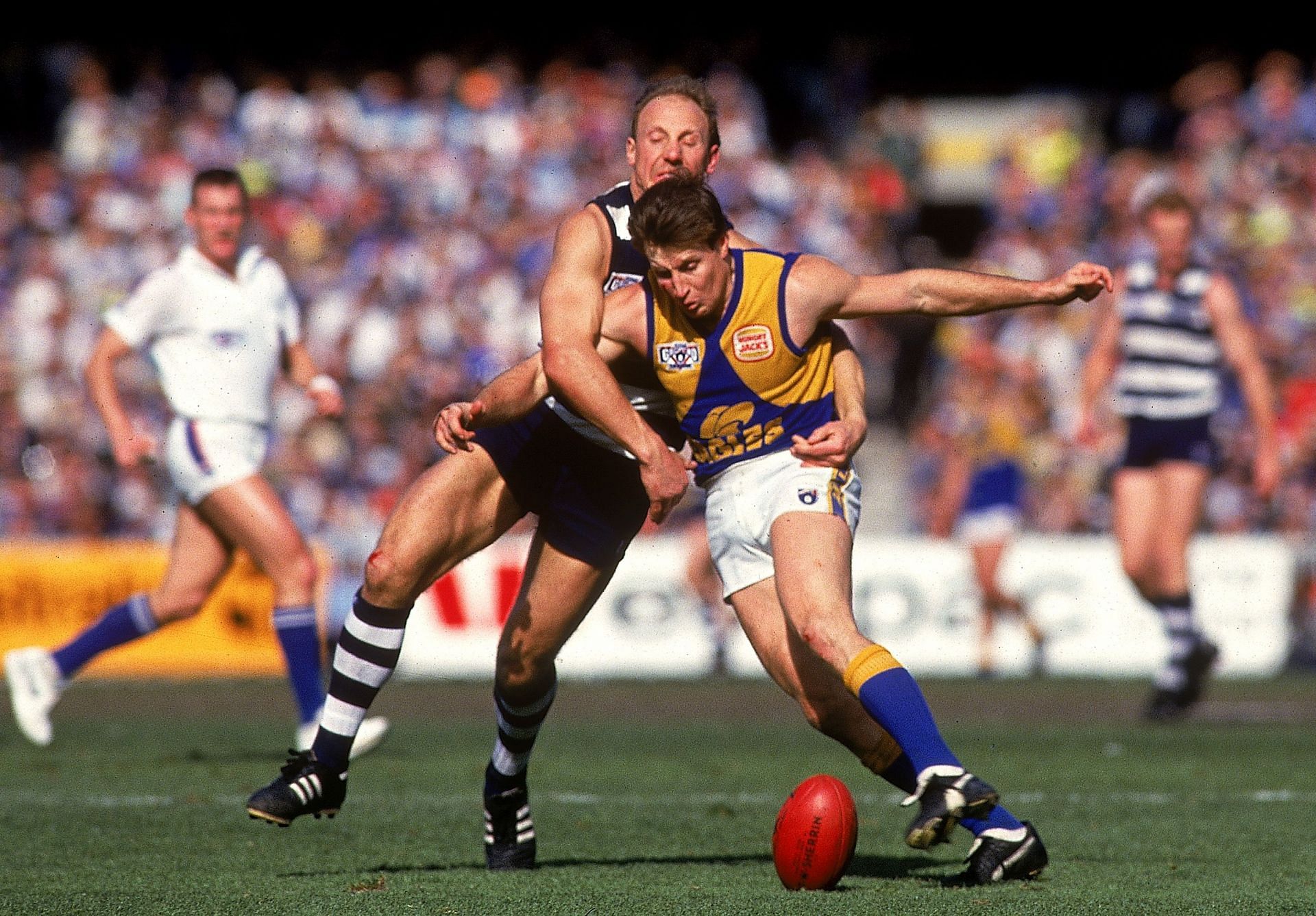
Ablett is regarded as one of the greatest to kick the ball and was renowned for his high-flying spectacular marks and his prolific goalkicking.
He made his debut for Hawthorn in 1982 but didn't adjust to city life, so he went back to Myrtleford. In 1984, Geelong convinced him to return to the VFL. He became one the sport's biggest stars and was phenomenal in the 1989 title charge for Geelong.
Although they lost the grand final, he scored nine goals and had arguably the greatest quarter performance by a player in competition history. His performance earned him the Norm Smith medal that year.
At the start of the 1991 AFL season, Ablett announced his retirement from the game, citing personal reasons and injury concerns. He was convinced otherwise and returned midway through the season.
He didn't return to his best form till 1993 and was shifted to full forward. He appeared in the 1992, 1994 and 1995 grand finals before finally retiring in 1997.